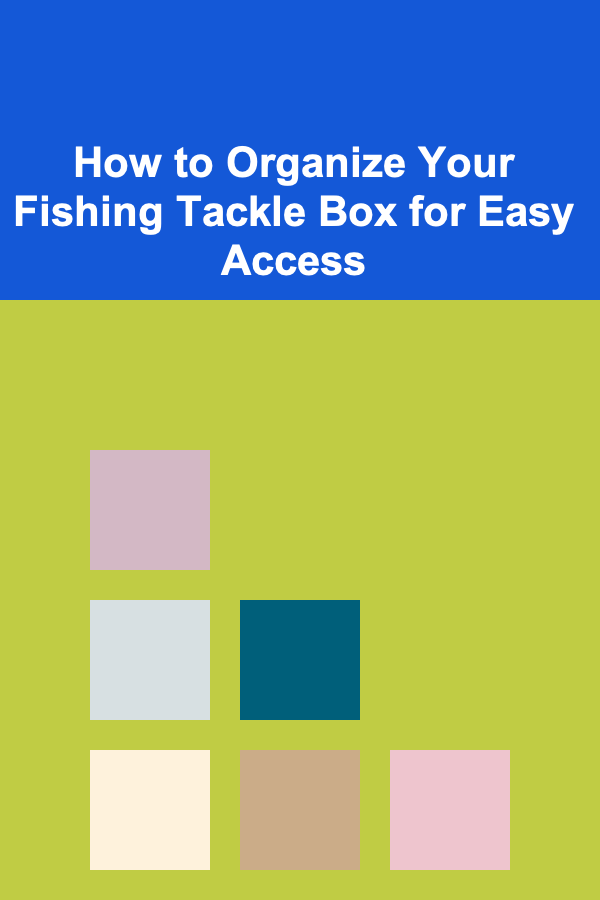
How to Provide Health and Nutrition Consulting Services
ebook include PDF & Audio bundle (Micro Guide)
$12.99$11.99
Limited Time Offer! Order within the next:

Health and nutrition consulting is a growing field, driven by the increasing awareness of the importance of a healthy lifestyle and its impact on overall well-being. As a health and nutrition consultant, you have the opportunity to help individuals or organizations make informed decisions about diet, exercise, and lifestyle changes. However, providing consulting services requires not only knowledge of nutrition and health but also strong communication, marketing, and business management skills. This actionable guide will walk you through how to provide effective health and nutrition consulting services, from understanding the scope of the industry to marketing your services.
Understand the Role of a Health and Nutrition Consultant
Before you can begin offering consulting services, it's crucial to understand the core responsibilities and scope of a health and nutrition consultant. Consultants typically focus on:
- Personalized Nutrition Plans: Creating meal plans tailored to the individual's specific needs, goals, and preferences.
- Dietary Guidance: Providing advice on how to incorporate a balanced and healthy diet into daily life, taking into account various health conditions (e.g., diabetes, hypertension, allergies, etc.).
- Lifestyle Coaching: Offering advice on physical activity, sleep hygiene, stress management, and other lifestyle factors that influence health.
- Behavioral Change Support: Helping clients make sustainable changes by addressing emotional and psychological barriers to health goals, such as food addiction, poor body image, or lack of motivation.
- Nutritional Education: Educating clients on the nutritional value of different foods, how to read food labels, and how to make healthier food choices when eating out or cooking at home.
Your job is not just about providing information but guiding clients toward better health through customized advice that works for their unique needs.
Gain the Necessary Qualifications and Credentials
Health and nutrition consulting requires a deep understanding of human biology, nutrition science, and health behavior, which you can acquire through formal education and certifications. While formal qualifications vary by region, here are general guidelines for becoming a trusted consultant in this field:
A. Formal Education
While not always mandatory, a degree in nutrition, dietetics, or a related field (such as public health or kinesiology) can give you the necessary foundation. Many nutrition consultants hold a Bachelor's or Master's degree in:
- Dietetics
- Nutrition Science
- Public Health
- Food Science
B. Certifications
In many countries, obtaining certifications is crucial for gaining credibility. Some internationally recognized certifications include:
- Certified Nutrition Specialist (CNS): Awarded by the Board for Certification of Nutrition Specialists (BCNS).
- Registered Dietitian (RD): In many countries, a Registered Dietitian is legally required to offer professional nutrition advice.
- Certified Health Coach (CHC): If you are more focused on behavior change and lifestyle coaching rather than just nutrition, this certification may be beneficial.
These credentials not only demonstrate your expertise but also help build trust with clients. Be sure to research the requirements specific to your country or region.
C. Stay Up-to-Date
The world of nutrition and health is constantly evolving, with new research findings, guidelines, and trends emerging regularly. It's essential to stay up-to-date by attending workshops, webinars, and conferences, as well as reading peer-reviewed journals, books, and reputable online resources. Continuing education will help you maintain your certifications and keep your advice scientifically sound.
Determine Your Consulting Services
Health and nutrition consulting can encompass a wide variety of services. When deciding on what you want to offer, it's important to define your niche and specialization. You may choose to offer a broad range of services or specialize in a specific area. Consider these options:
A. One-on-One Consultations
These are personalized sessions with individual clients where you can assess their current health status, goals, challenges, and create a customized nutrition plan. One-on-one sessions allow you to build a closer relationship with your clients and provide tailored solutions.
B. Group Programs
Group consulting programs can be an effective way to reach multiple clients at once. These programs may include workshops on healthy eating, fitness, stress management, or cooking classes. Group settings often provide motivation and camaraderie among participants.
C. Corporate Wellness Programs
Many companies offer wellness programs to their employees to improve productivity, reduce healthcare costs, and promote overall well-being. As a consultant, you can create nutrition workshops, offer personalized advice, or conduct wellness challenges for organizations.
D. Specialized Consulting
Depending on your qualifications, you might specialize in specific health concerns such as weight loss, digestive health, sports nutrition, or managing chronic conditions like diabetes or heart disease. Focusing on a niche allows you to become an expert in a specific area and attract a targeted audience.
E. Online Consultations
With the rise of telehealth, online consulting has become increasingly popular. You can offer virtual consultations via video calls, email, or specialized health platforms, making it easier to reach clients anywhere in the world.
F. Content Creation
In addition to one-on-one consulting, many nutrition consultants create valuable content to educate their audience. This can include blogs, YouTube videos, podcasts, and social media posts. Content creation can help you build authority, reach a broader audience, and even attract clients.
Establish Your Business Framework
Once you've decided on the services you want to offer, the next step is setting up your consulting business. This involves legal, financial, and operational decisions that will help you operate effectively and protect yourself professionally.
A. Business Structure
Decide on the legal structure of your business. Options include:
- Sole Proprietorship: A simple structure where you are the sole owner and responsible for everything.
- Limited Liability Company (LLC): Provides legal protection for your personal assets in case of legal action.
- Corporation: Offers more complex structure and protection but requires more paperwork.
B. Pricing Your Services
Pricing can vary depending on your location, experience, and the services you provide. You might charge on a per-session basis, offer packages for ongoing support, or set a flat rate for specific programs. Research competitors and determine what aligns with the value you offer, ensuring that your pricing is both competitive and sustainable.
C. Legal Considerations
Make sure you have the necessary insurance (such as professional liability insurance) to protect your business. Also, check local laws regarding dietary and health advice to ensure that you are compliant with health regulations and licenses.
D. Create Contracts and Agreements
To protect both you and your clients, create clear contracts that outline your services, pricing, terms of engagement, and cancellation policies. This will help ensure that expectations are set and misunderstandings are avoided.
Market Your Health and Nutrition Consulting Services
With your qualifications, services, and business framework in place, the next step is attracting clients. Here are effective marketing strategies for your consulting business:
A. Build an Online Presence
Having a professional website is essential. Your website should highlight your qualifications, services, testimonials from clients, and blog content to showcase your expertise. It's also a great idea to have a contact form for inquiries and an online booking system for consultations.
B. Social Media
Leverage social media platforms like Instagram, Facebook, and LinkedIn to reach potential clients. Share useful tips, client success stories, and behind-the-scenes content. Engaging with your audience through regular posts and stories can help build trust and awareness of your services.
C. Offer Free Resources
To build credibility and attract leads, offer free resources like eBooks, nutrition guides, or webinars. This helps potential clients get a taste of your expertise and may lead to paid services.
D. Networking
Attend local health fairs, workshops, and seminars to network with potential clients and other professionals in the health and wellness industry. Building relationships with doctors, fitness trainers, and other health experts can lead to referrals.
E. Leverage Testimonials and Referrals
Word of mouth is a powerful tool in the health and nutrition industry. Encourage satisfied clients to share their experiences and refer friends or family. Testimonials can be a great addition to your website and promotional materials.
Evaluate Your Success and Continue Growing
Providing health and nutrition consulting services requires constant learning, refinement, and self-assessment. After working with clients, evaluate the results and feedback to understand what's working well and where improvements are needed. Keep track of the goals you've helped clients achieve, and adjust your approach accordingly.
Continue developing your expertise by taking advanced courses, attending industry conferences, and learning new approaches to health and wellness.
Conclusion
Becoming a successful health and nutrition consultant involves much more than just knowing about food and exercise; it requires a deep understanding of individual needs, business acumen, and the ability to communicate effectively. By gaining the right qualifications, defining your services, building a solid business framework, and marketing yourself properly, you can build a thriving health and nutrition consulting practice that positively impacts the lives of your clients.
Reading More From Our Other Websites
- [Organization Tip 101] How to Choose the Right Furniture for Easy Organization
- [Weaving Tip 101] Sustainable Fiber Crafts: Eco‑Friendly Weaving and Dyeing Practices
- [Home Security 101] How to Prevent Package Theft at Your Front Door
- [Home Maintenance 101] How to Extend the Life of Your Hardwood Floors with Proper Maintenance
- [Personal Care Tips 101] How to Make Your Own Scented Body Lotion at Home
- [Personal Care Tips 101] How to Choose a Toothbrush with Eco-Friendly Materials
- [Gardening 101] Visual Cheat Sheet: Quick Photo IDs for Garden Pests and Pathogens
- [Personal Care Tips 101] How to Apply Face Oil Before Makeup: A Comprehensive Guide
- [Home Storage Solution 101] How to Create a Storage-Friendly Laundry Room
- [Personal Investment 101] How to Choose the Best Long-Term Investment Strategies for Your Goals

How to Add Value to Your Home Through Simple Staging Changes
Read More
How to Build a Strong Brand for Your Bicycle Delivery Service
Read More
How to Create an Inspiration Board for Your Sewing Ideas
Read More
How to Incorporate Multi-Functional Furniture in Your Bedroom
Read More
How to Organize Your Fishing Tackle Box for Easy Access
Read More
How to Support a Friend with Mental Health Struggles
Read MoreOther Products

How to Add Value to Your Home Through Simple Staging Changes
Read More
How to Build a Strong Brand for Your Bicycle Delivery Service
Read More
How to Create an Inspiration Board for Your Sewing Ideas
Read More
How to Incorporate Multi-Functional Furniture in Your Bedroom
Read More
How to Organize Your Fishing Tackle Box for Easy Access
Read More